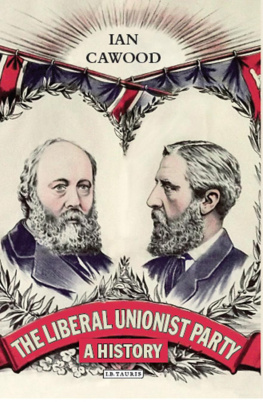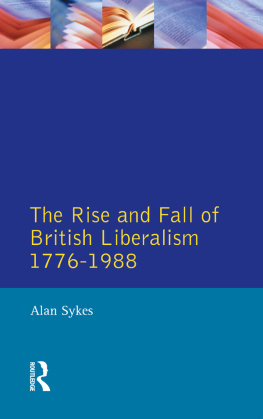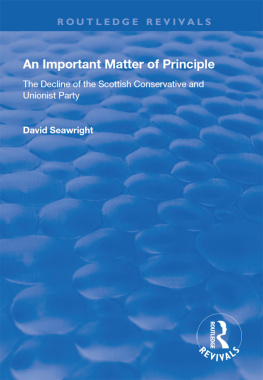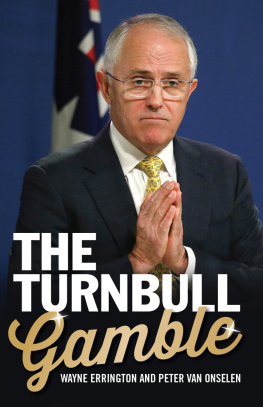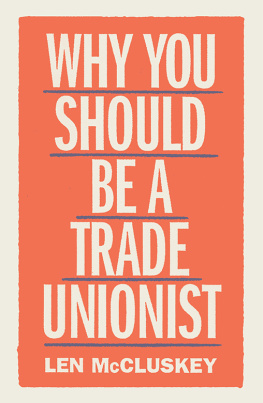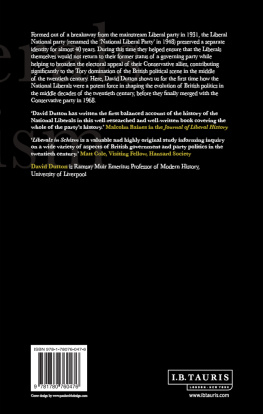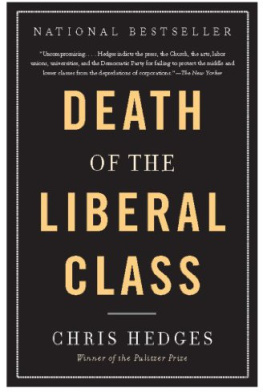Ian Cawood is Head of History at Newman University College, Birmingham. He holds a PhD from the University of Leicester. He is a regular contributor to the Times Literary Supplement and his previous publications include The First World War and Britain in the Twentieth Century.

This book is dedicated to the memory of my mother who died during the final stages of its completion.
Published in 2012 by I.B. Tauris & Co Ltd
6 Salem Road, London W2 4BU
175 Fifth Avenue, New York NY 10010
www.ibtauris.com
Distributed in the United States and Canada
Exclusively by Palgrave Macmillan
175 Fifth Avenue, New York NY 10010
Copyright 2012 Ian Cawood
The right of Ian Cawood to be identified as the author of this work has been asserted by the author in accordance with the Copyright, Designs and Patent Act 1988.
All rights reserved. Except for brief quotations in a review, this book, or any part thereof, may not be reproduced, stored in or introduced into a retrieval system, or transmitted, in any form or by any means, electronic, mechanical, photocopying, recording or otherwise, without the prior written permission of the publisher.
International Library of Political Studies 53
ISBN 978 1 84885 917 3
eISBN 978 0 85773 652 9
A full CIP record for this book is available from the British Library
A full CIP record for this book is available from the Library of Congress
Library of Congress catalog card: available
Typeset by Newgen Publishers, Chennai
CONTENTS
LIST OF ILLUSTRATIONS
ACKNOWLEDGEMENTS
I am indebted to Dr Stuart Ball for his patient encouragement, guidance and painstaking proof-reading of the bulk of the material in this book. I would also like to thank Professor Yahya Nakeeb, director of research at Newman University College, who has unhesitatingly supported this project through many years. I am also grateful to Dr Matthew Cragoe, Dr James Owen, Dr Victoria Barbery, Dr Nick Crowson, Professor Jonathan Parry, Professor Eric Evans, Dr Angus Hawkins and Dr Noelle Plack for their advice and assistance. I would also like to extend my thanks to the staff of the Modern Political Records Room at the Bodleian Library in Oxford, the Cadbury Research Archive at the University of Birmingham, the Mitchell Library in Glasgow, the National Library of Scotland, the Womens Library in London, the Local History and Archives service at Birmingham Central Library and the archives of the London School of Economics, all of whom have made a significant contribution to this study with their professionalism and scholarly assistance. I am particularly grateful to Lord Clifford of Ugbrooke House for his permission to reproduce the political propaganda found in his archive. I must thank my editor at I.B Tauris, Joanna Godfrey, for her enthusiastic commitment to the book and the three anonymous reviewers who did much to improve the final manuscript. Any errors of presentation, content and understanding that remain are therefore entirely my own fault. Finally, I would like to thank my wife and my children for their patience and forbearance over the many years it took to complete this text.
INTRODUCTION
LADY BRACKNELL: | What are your politics? |
JACK: | Well, I am afraid I really have none I am a Liberal Unionist. |
LADY BRACKNELL: | Oh, they count as Tories. They dine with us. Or come in the evening, at any rate. |
(Oscar Wilde, The Importance of Being Earnest, 1895)
Lady Bracknells witticism, though politely laughed at by audiences for over a hundred years, has, of course, lost any political meaning for most theatre-goers. As she suggests, after 1895 the Liberal Unionists quickly became socially and politically allied with the Tories and ever since there has been a tendency to forget that they were a separate party. This book intends to examine whether the absorption of the Liberal Unionists into the Conservative and Unionist Party was inevitable by examining the ideology, organisation and electoral performance of the Liberal Unionists, as well as the troubled relationship between the two branches of the Unionist alliance from 1886 until 1912.
The division of the Liberal Party in 1886, which became permanent after the failure of the Round Table conference of 1887, is perhaps unique in British political history for a number of reasons: It was the biggest defection from any political party (at its height, the Party boasted seventy-eight MPs who refused to obey the Gladstonian whip); it was the longest lived breakaway political force in modern British political history, lasting for twenty-six years as an independent party, with its own associations, leadership, whips, agents, funds and publications (including a newspaper from 1887 until 1892 and a Party newsletter for the next twenty years); it was, arguably, the bitterest division in nineteenth-century political life, matched only in modern history by the split of the Labour Party in 1931. In 1886, fathers and sons, friends and club members parted company over the issue. Some, like William Harcourt and Joseph Chamberlain, managed to remain on good terms (in private at least), but others, such as Lady Stanley, president of the Womens Liberal Unionist Association, and her daughter the Countess of Carlisle, opened a breach that lasted beyond the death of one or other party. Mary Jeune later commented:
The Home Rule question absolutely divided London society into two factions, and the cleavage was distinct. The Home Rule Party were virtually ostracised by their own friends and relations the cleavage between the two parties and the intensity of feeling surpassed anything in the memory even of those people who remembered the bitterness which existed at the time of the Reform Bill [of 1832].
The division between the Gladstonians and Unionists was in most cases social as well as political. Alfred Pease recorded in May 1887: they [the Liberal Unionists] are more viciously bitter than our Conservative opponents. Give me every time a Tory, who can speak with civility at least when he has time to meet such social outcasts as ourselves.
The study of the Home Rule crisis has largely been dominated by those who look at the crisis as a missed opportunity for peaceful Irish self-government and those whose primary interest has been to investigate the decline of the Liberal Party. In both cases, the interpretation of 1886 is clouded by the attempt to find antecedents for an event that occurred after the First World War. Beginning with Morleys official Life of Gladstone in 1903 and developed by J. L. Hammond in 1938, there has been a tendency among the former to regard Gladstone as a far-sighted, humane politician, defeated by the careerism, timidity, self-interest and bigotry of his opponents, with devastating consequences for Ireland in the twentieth century.
Those interested in Unionism have tended to view the issue from an Irish perspective, or more particularly an Ulster one. The largest number of studies published recently on British attitudes towards Ireland in the period and on British support for the Union, have tended to focus on the personalities, ideologies and events of the island of Ireland. D. George Boyce and Alan ODay have largely regarded Liberal Unionism as mere dissident Liberals, ciphers for Conservative opposition to devolution, not worthy of the attention that they give the Ulster Unionist movement.


